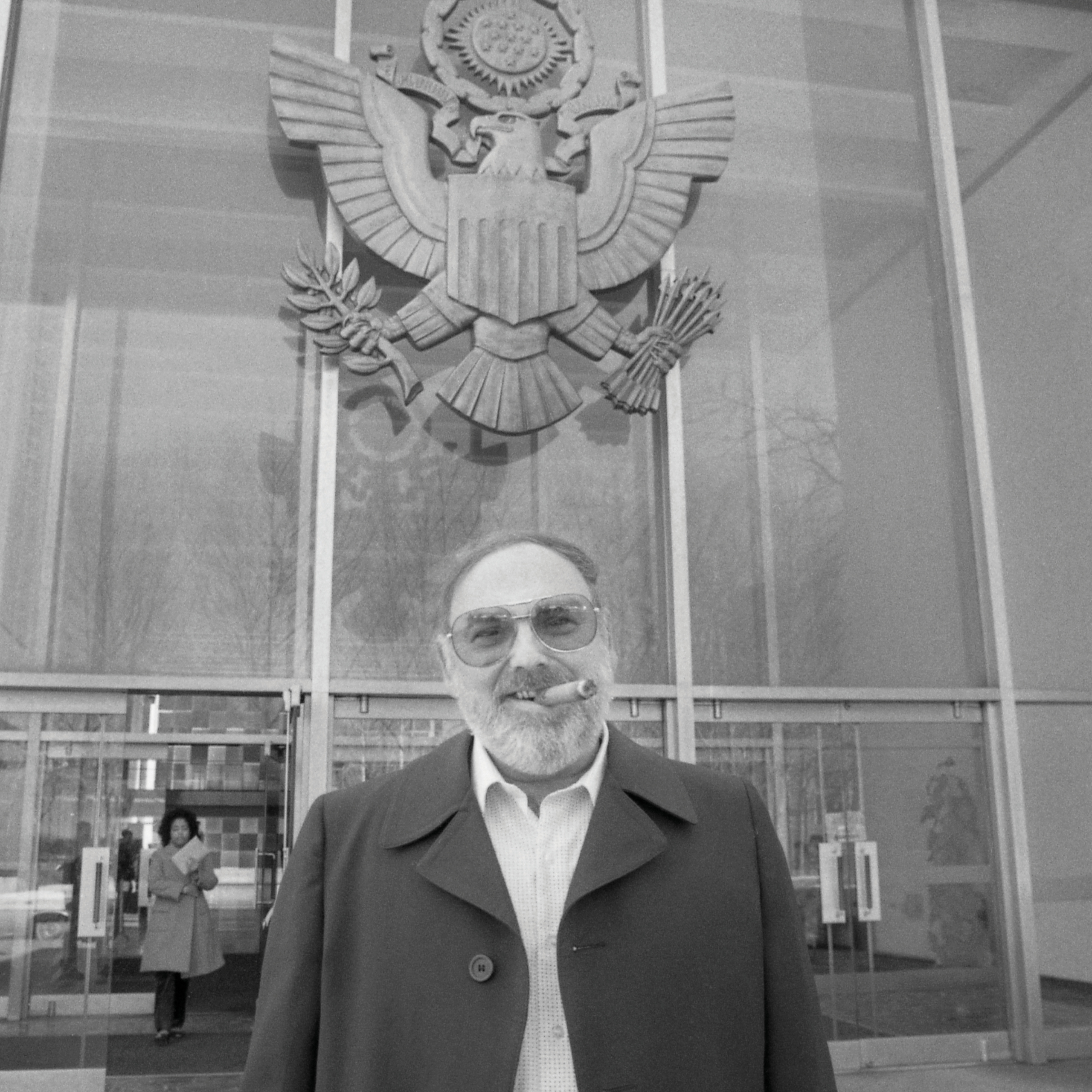Feb. 2, 1980: Abscam bribery investigation revealed

Photo of Melvin Weinberg by Bettmann Archive/Getty Images
In early 1980, most Americans probably felt they could not be shocked by the latest news.
In Tehran, 52 Americans were in their third month as hostages inside the U.S. Embassy. In Afghanistan, the Soviet army was in its second month of a sprawling invasion. And in the United States, inflation stood at 14%—an astronomical rate spurred by the Iranian unrest and a drop in production of OPEC oil.
Nevertheless, there was shock when on Feb. 2, 1980, news outlets revealed that a U.S. senator and at least seven congressmen were among dozens of targets under investigation for soliciting and accepting bribes. In a far-flung and sometimes ludicrous sting operation, lawmakers had accepted hundreds of thousands of dollars from undercover FBI agents posing as oil-rich Arabs and their minions in exchange for loans and investments in the U.S.
At the heart of the investigation—known by its code name, Abscam—was Melvin Weinberg, a flashy inveterate con artist who had essentially been hired by the government to create cases against white-collar criminals. Charged with fleecing a Pittsburgh real estate developer, the Bronx, New York-born Weinberg had agreed to help the government make cases involving some stolen paintings and counterfeit securities. But those cases soon developed into a public integrity investigation that exposed mob-inflected corruption within the Democrat-controlled political machinery in the Northeast and beyond.
Under the wary eye of the FBI, Weinberg established a fake company known as Abdul Enterprises Ltd. (hence the name Abscam) in a modest office building in Hauppauge, New York. The office became the U.S. presence of the rich and elusive “Sheikh Kambir Abdul Rahman.” With Rahman’s fortune endorsed by a contact at Chase Manhattan Bank, a steady stream of hustlers, bagmen, lawyers, power brokers and politicians began soliciting chunks of “the sheikh’s” massive fortune.
At first, the ruse was scarcely believable. Sheikh Rahman, for instance, was actually a local FBI agent wearing a kaffiyeh. And “Yassir Habib,” a purported partner in Abdul Enterprises, was portrayed by an Arabic-speaking FBI agent from Cleveland. But it was FBI agent Tony Amoroso, portraying Habib’s agent, and Weinberg, as Abdul’s cigar-chewing U.S. representative, who became fixtures at dozens of encounters at the grift-driven nexus of politics and organized crime.
Nearly all of the meetings between Abdul Enterprises and its targets were recorded or filmed, including ones at New York City’s Plaza Hotel, in a New Jersey Playboy Club and in Florida waters on a yacht seized from a drug operation. And as the prosecutions played out over the next year, Weinberg’s creative, colorful patter became familiar in nightly news videos of large sums of cash being handed to con men, lawyers and public officials to protect or participate in a parade of imaginary investments and outright crooked schemes—from casino licensing and waste management contracts to immigration waivers and bogus bonds.
In addition, the investigation provided unexpected intelligence about organized crime influence in the burgeoning casino industry in Atlantic City. Although the prosecution of mob figures never materialized as the result of Abscam, tape after tape revealed the nature and extent of mob control over the construction, licensing, operations and background ownership of casinos, whether in Nevada or New Jersey.
Ultimately, Harrison Williams, New Jersey’s senior senator, and six U.S representatives—all but one of them Democrats and many of them lawyers—were convicted.In all, 38 individuals were convicted—and the convictions were upheld on appeal.
Still, Abscam provoked concerns about entrapment in proliferating government-operated scams—which grew from 53 in 1977 to nearly 463 by 1981. An investigation by the Republican-controlled Senate essentially absolved the Justice Department and the FBI in the Abscam investigation; it recommended stricter guidelines and a broad array of controls for such investigations going forward.
Write a letter to the editor, share a story tip or update, or report an error.


